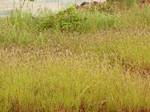- go to the top
- About WN
- Contact
- Feedback
- Privacy Policy
- © 2011 World News Inc., all Rights Reserved
- agriculture
- Agrostemma
- Ailanthus altissima
- allelopathy
- alluvial
- beneficial weed
- Bermuda grass
- Bindweed
- Book of Genesis
- Broadleaf plantain
- Burdock
- Cannabis
- Chenopodium album
- Cirsium arvense
- Cirsium vulgare
- Clover
- corncockle
- Creeping Charlie
- crop
- Crop weeds
- dandelion
- dune
- East Asia
- Europe
- flower
- food
- Forest
- garden
- Glechoma hederacea
- Goldenrod
- grain
- hardpan
- Harvard University
- herbal medicine
- Herbicide
- horticulture
- Indigenous (ecology)
- Infoplease
- insect
- Introduced species
- Invasive species
- Japanese Knotweed
- Kudzu
- lawn
- Leafy spurge
- livestock
- Milk thistle
- North America
- noxious weed
- nutrient
- park
- pathogen
- Pesticide
- plant
- Poison ivy
- R-selection
- Ragweed
- reproduce
- Richard C. Lewontin
- river bank
- river delta
- Rumex crispus
- Rumex obtusifolius
- Senecio jacobaea
- soil
- soil seed bank
- sonnet
- Sorrel
- soup
- St John's wort
- Sumac
- Taraxacum
- thistle
- Vavilovian mimicry
- Weed control
- Weed of cultivation
- wheat
- Wild carrot
- William Shakespeare
- Wood sorrel
- Yellow nutsedge
- Further Away
- Hard to Kill
- Fly Together
- Hit and Miss
- If Only U Could See
- Dazzling Gasoline
- Messed Up
- Again & Again
- Love Takes Two
- Extra Planetary
- If Only U Could See (Fade Vox remix / edit)
- Further Away
- Hard to Kill
- Fly Together
- Hit and Miss
- If Only U Could See
- Dazzling Gasoline
- Messed Up
- Again & Again
- Love Takes Two
- Extraplanetary


- Order: Reorder
- Duration: 5:09
- Published: 29 May 2011
- Uploaded: 03 Dec 2011
- Author: smokeybarz

- Order: Reorder
- Duration: 1:30
- Published: 14 Feb 2007
- Uploaded: 04 Dec 2011
- Author: ASBO1THE1GREAT

- Order: Reorder
- Duration: 4:02
- Published: 19 Oct 2009
- Uploaded: 04 Dec 2011
- Author: SadNinjaComedy

- Order: Reorder
- Duration: 2:21
- Published: 30 Dec 2007
- Uploaded: 04 Dec 2011
- Author: blacktreemedia

- Order: Reorder
- Duration: 21:07
- Published: 14 Aug 2011
- Uploaded: 03 Dec 2011
- Author: WhiteBoy7thst


- Order: Reorder
- Duration: 8:21
- Published: 26 Nov 2006
- Uploaded: 03 Dec 2011
- Author: urbangrower




- Order: Reorder
- Duration: 4:26
- Published: 12 Apr 2011
- Uploaded: 04 Dec 2011
- Author: westfesttv

- Order: Reorder
- Duration: 4:18
- Published: 02 Dec 2009
- Uploaded: 03 Dec 2011
- Author: kushcomedy


- Order: Reorder
- Duration: 3:10
- Published: 18 Nov 2011
- Uploaded: 04 Dec 2011
- Author: collegehumor

- Order: Reorder
- Duration: 2:29
- Published: 08 Jun 2009
- Uploaded: 02 Dec 2011
- Author: Laugh0rDie





- Order: Reorder
- Duration: 4:04
- Published: 29 Dec 2005
- Uploaded: 04 Dec 2011
- Author: bigjeff909

- Order: Reorder
- Duration: 6:45
- Published: 08 Dec 2006
- Uploaded: 04 Dec 2011
- Author: BadBoy2001
size: 11.3Kb
-
 Iran test fires long range missiles, amid nuclear tensions
Ha'aretz
Iran test fires long range missiles, amid nuclear tensions
Ha'aretz
-
 China prepares for lift-off with mission to land on the Moon
The Independent
China prepares for lift-off with mission to land on the Moon
The Independent
-
 North Korea's new leadership lashes out at South Korea
The Star
North Korea's new leadership lashes out at South Korea
The Star
-
 U.S. Welfare 'Reforms' Have Deepened Poverty, Led To Family Breakups
WorldNews.com
U.S. Welfare 'Reforms' Have Deepened Poverty, Led To Family Breakups
WorldNews.com
-
 Reading Arab-Islamic Awakenings and OWSM
WorldNews.com
Reading Arab-Islamic Awakenings and OWSM
WorldNews.com
- adaptation
- agriculture
- Agrostemma
- Ailanthus altissima
- allelopathy
- alluvial
- beneficial weed
- Bermuda grass
- Bindweed
- Book of Genesis
- Broadleaf plantain
- Burdock
- Cannabis
- Chenopodium album
- Cirsium arvense
- Cirsium vulgare
- Clover
- corncockle
- Creeping Charlie
- crop
- Crop weeds
- dandelion
- dune
- East Asia
- Europe
- flower
- food
- Forest
- garden
- Glechoma hederacea
- Goldenrod
- grain
- hardpan
- Harvard University
- herbal medicine
- Herbicide
- horticulture
- Indigenous (ecology)
- Infoplease
- insect
- Introduced species
- Invasive species
- Japanese Knotweed
- Kudzu
- lawn
- Leafy spurge
- livestock
- Milk thistle
- North America
- noxious weed
- nutrient
- park
- pathogen
- Pesticide
- plant
- Poison ivy
- R-selection
- Ragweed
- reproduce
- Richard C. Lewontin
size: 2.6Kb
size: 4.8Kb
size: 8.0Kb
size: 0.9Kb
size: 7.7Kb
size: 5.3Kb
size: 2.4Kb
A weed in a general sense is a plant that is considered by the user of the term to be a nuisance, and normally applied to unwanted plants in human-controlled settings, especially farm fields and gardens, but also lawns, parks, woods, and other areas. More specifically, the term is often used to describe native or nonnative plants that grow and reproduce aggressively. Generally, a weed is a plant in an undesired place.
In Weeds of the West, the authors determined which plants to include in the book based on the following criterion, attributed to J.M. Torrell:
A plant that interferes with management objectives for a given area of land at a given point in time.Harlan and deWet (1965) defined a weed more simply as “a generally unwanted organism that thrives in habitats disturbed by man.”
Weeds may be unwanted for a number of reasons: they might be unsightly, or crowd out or restrict light to more desirable plants (especially crop plants) or use limited nutrients from the soil. They can harbor and spread plant pathogens that infect and degrade the quality of crop or horticultural plants. Some weeds are a nuisance because they have thorns or prickles, some have chemicals that cause skin irritation or are hazardous if eaten, or have parts that come off and attach to fur or clothes.
The term weed in its general sense is a subjective one, without any classification value, since a "weed" is not a weed when growing where it belongs or is wanted. Indeed, a number of "weeds" have been used in gardens or other cultivated-plant settings. 'Volunteer weeds' are crop plants from one year which are growing in the subsequent crop. An example of a crop weed that is grown in gardens is the corncockle, Agrostemma, which was a common field weed exported from Europe along with wheat, but now sometimes grown as a garden plant.
Professor Richard C. Lewontin of Harvard University defines weeds as plants that create environmental conditions in which they themselves cannot reproduce. He takes the example of pine trees that crowd out sunlight such that their own offspring cannot grow. Weeds continue to exist, because the environment is continually being disturbed to create open conditions for new generations, such as forest fires and human activity.
Distribution
Weeds generally share similar adaptations that give them advantages and allow them to proliferate in disturbed environments whose soil or natural vegetative cover has been damaged. Naturally occurring disturbed environments include dunes and other windswept areas with shifting soils, alluvial flood plains, river banks and deltas, and areas that are often burned. Since human agricultural practices often mimic these natural environments where weedy species have evolved, weeds have adapted to grow and proliferate in human-disturbed areas such as agricultural fields, lawns, roadsides, and construction sites. The weedy nature of these species often gives them an advantage over more desirable crop species because they often grow quickly and reproduce quickly, have seeds that persist in the soil seed bank for many years, or have short lifespans with multiple generations in the same growing season. Perennial weeds often have underground stems that spread out under the soil surface or, like ground ivy (Glechoma hederacea), have creeping stems that root and spread out over the ground.Some plants become dominant when introduced into new environments because they are freed from specialist consumers; in what is sometimes called the “natural enemies hypothesis,” plants freed from these specialist consumers may increase their competitive ability. In locations were predation and mutual competitive relationships no longer exist, some plants are able to increase allocation of resources into growth or reproduction. The weediness of some species that are introduced into new environments can be caused by the introduction of new chemicals; sometimes called the "novel weapons hypothesis," these introduced allelopathyic chemicals, which indigenous plants are not yet adapted to, may limit the growth of established plants or the germination and growth of seeds and seedlings.
Relation to humans
As long as humans have cultivated plants, weeds have been a problem. Weeds have even been mentioned in religious and literature texts like the following quotes from Genesis and a Shakespearean sonnet:
"Cursed is the ground because of you; through painful toil you will eat of it all the days of your life. It will produce thorns and thistles for you, and you will eat the plants of the field. By the sweat of your brow you will eat your food until you return to the ground,"
"To thy fair flower add the rank smell of weeds: But why thy odour matcheth not thy show, The soil is this, that thou dost common grow."
Weed seeds are often collected and transported with crops after the harvesting of grains. Many weed species have moved out of their natural geographic locations and have spread around the world with humans. (See Invasive species.) Not all weeds have the same ability to damage crops and horticultural plants or cause harm to animals. Some have been classified as noxious weeds by governmental authorities because if left unchecked, they often dominate the environment where crop plants are to be grown or cause harm to livestock. They are often foreign species mistakenly or accidentally imported into a region where there are few natural controls to limit their population and spread. Many weeds have ideal locations for growth and reproduction because of the large areas of open soil created by the conversion of land to field agriculture. Farming practices that produce unvegetated soils part of the year and human distribution of food crops mixed with seeds of weeds from other parts of the world have facilitated the colonization of vast new areas for many weedy species; humans are the vector of transport and the producer of disturbed environments, thus many weedy species have an ideal association with humans.
A number of weeds, such as the dandelion Taraxacum, are edible, and their leaves and roots may be used for food or herbal medicine. Burdock is common weed over much of the world, and is sometimes used to make soup and other medicine in East Asia. These so-called "beneficial weeds" may have other beneficial effects, such as drawing away the attacks of crop-destroying insects, but often are breeding grounds for insects and pathogens that attack other plants. Dandelions are one of several species which break up hardpan in overly cultivated fields, helping crops grow deeper root systems. Some modern species of domesticated flower actually originated as weeds in cultivated fields and have been bred by people into garden plants for their flowers or foliage.
Some people have appreciated weeds for their tenacity, their wildness and even the work and connection to nature they provide. As Christopher Lloyd wrote in The Well-Tempered Garden
"Many gardeners will agree that hand-weeding is not the terrible drudgery that it is often made out to be. Some people find in it a kind of soothing monotony. It leaves their minds free to develop the plot for their next novel or to perfect the brilliant repartee with which they should have encountered a relative's latest example of unreasonableness."
Shunryu Suzuki, the Zen master, is credited with proclaiming, "For Zen students, a weed is a treasure."
Perhaps the greatest defense of weeds is contained in the last stanza of Gerard Manley Hopkins' poem Inversnaid:
"What would the world be, once bereft, of wet and wildness? Let them be left. O let them be left; wildness and wet; Long live the weeds and the wilderness yet."
Examples
See also
References
External links
Category:Agricultural pests Category:Garden pests Category:Environmental issues
af:Onkruid ar:حشيشة gn:Javorái az:Alaq bg:Плевел ca:Herba adventícia cs:Plevel da:Ukrudt de:Unkraut et:Umbrohi es:Maleza eo:Trudherbo eu:Sastraka fa:علف هرز fr:Adventice ko:잡초 hi:खरपतवार hr:Korov io:Herbacho id:Gulma it:Piante infestanti he:עשבים שוטים jv:Gulma lt:Piktžolė hu:Gyom mk:Плевел nl:Onkruid nds-nl:Krödde (plaanten) ja:雑草 no:Ugress nn:Ugras nds:Unkruut pl:Chwast pt:Erva daninha ru:Сорные растения scn:Fratta simple:Weed sr:Коров fi:Rikkakasvi sv:Ogräs ta:களை te:కలుపు మొక్క th:วัชพืช udm:Жаг турынъёс uk:Бур'ян wa:Crouwå wuu:草 yi:אומקרויט zh:野草This text is licensed under the Creative Commons CC-BY-SA License. This text was originally published on Wikipedia and was developed by the Wikipedia community.


































